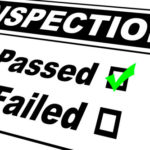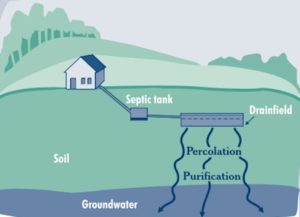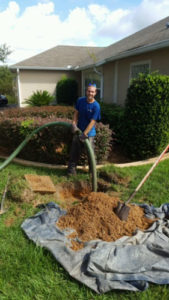 Maintenance and regular inspections are crucial to owning an effective and efficient septic system. Additionally, they give an accurate assessment of your system’s overall health and help target any repairs or upgrades your system might need. Advanced Septic Services of Clermont, FL offers thorough septic system inspections, covering all components and parts of your system.
Maintenance and regular inspections are crucial to owning an effective and efficient septic system. Additionally, they give an accurate assessment of your system’s overall health and help target any repairs or upgrades your system might need. Advanced Septic Services of Clermont, FL offers thorough septic system inspections, covering all components and parts of your system.
Types of Septic System Inspections
Not every septic system inspection is the same. Broken down into two general categories, they are either visual inspections or full inspections.
Visual Inspections
These are exactly what they sound like – a visual inspection of your septic system. Typically, by a home inspector. Normally, they are not performed by a professional septic company, unless requested by the lender or savvy home buyers.
These visual inspections are quite simple. They include tasks like:
- Running the water in the home.
- Flushing the toilets.
- A general walk-through and glance at the area of the yard containing the septic system.
If there are no backups, slow draining sinks, or water puddles in the absorption area—the system passes. Pretty basic. If you are looking into buying a home, it may be worth the money to hire a full inspection. Visual inspections only tell you about the service, not the health of the tank or drainfield.
Full Inspections

Photo Source: epa.gov
Full inspections are the standard for professional septic companies. You want a pro like Advanced Septic Services giving your system a once-over before handing out an A+. We want to know all of the nitty-gritty details.
While completing all the items done in visual inspections, a full inspection dives deep. The septic tank is opened and examined. Where is the water level? Too full means its overloading, but too low means a possible leak. Also, where is the sludge line? Is it time to pump the tank?
Usually the tank will be pumped down, checking for backflow from the drainfield – an indication of a blockage or backup. There are a few situations during an inspection when it is best to avoid septic tank pumping. No aspect is overlooked with a full inspection.
Why Schedule a Septic System Inspection?
Regular Maintenance
It’s that time, the time to inspect your system. Whether you have a regimented schedule or you’ve forgotten until now; either way, it’s time to give your septic system a check-up.
You Notice a Problem
Just had a pump-out less than a year ago, but your sink and toilets are draining slowly? It’s time to schedule a septic tank inspection for backups or blockages. Stop damaging you’re the natural and crucial bacteria in your tank with harsh “fix-it” chemicals. Just find the problem and address it directly—the bacteria in your system will thank you.
Upcoming Construction
Expanding or remodeling your home is an exciting project—but, make sure your septic is ready for it. Can it handle the additional bathroom? Can you add to that existing pipe, or is it on overload? Also, where is the drainfield and septic tank—so you don’t park on it? These are all questions answerable after an inspection.
Buying a New Home with A Septic System
Buying a new home is daunting—and expensive. Save yourself from costly repairs a few years later by ordering a full inspection by a professional septic company. While home inspectors perform visual inspections, they don’t cover everything and problems are easily missed. Give yourself that peace of mind.
What’s more, lender’s might require it. Don’t want to pay the price? Talk to your realtor about negotiating a lower price, allowing you to cover inspection fees.
Still feeling a bit nervous about the process? Check our our tips for septic tank inspections for home buyers.
Our Septic System Inspections
We pride ourselves on thorough, meticulous septic system inspections for residential and commercial systems. Advanced Septic Services considers your entire system from pipes to tank, formulating possible repairs to keep your system healthy and functioning. In addition, we understand the unique needs of septic systems in Clermont, FL and the Central Florida area.

Pumping out the septic tank to check for backflow from the drainfield and lower sludge levels.
We evaluate the following items during septic system inspections:
- Location, age, size, and original design.
- Soil conditions, drainage, seasonal water table heights, and flooding potential of the surrounding area.
- History of inspections and repairs when available.
- The state of plumbing fixtures and layout. This helps us in determining if structural changes were made to the plumbing. Inadvertently, these changes could increase the flow to the system above its capacity. Also, we verify everything is in proper working order; slow drains indicate potential failures in the system.
- Consider the time your septic tank was pumped.
- Sludge levels in your septic tank. If not recently pumped, these could potentially be high.
- Check for backflow from the drainfield into the tank. This indicates potential backups or blockages in the absorption field.
- Absorption field condition. Notably, we look for evidence of liquid waste reaching the soil surface—which leads to water contamination. In addition, we inspect for signs of compaction and damage from too much weight on the drainfield.
Ready to schedule an inspection? Call Advanced Septic Services at 352.242.6100 or contact us online.

